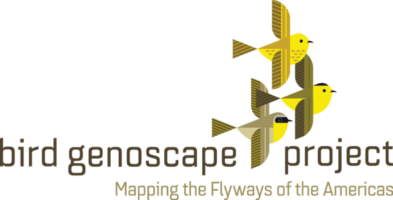Burrowing Owl
Burrowing Owls (Athene cunicularia) are a declining species that has been directly impacted by habitat loss and novel structures in migratory flyways, such as wind turbines. These small birds of prey are heavily managed, with numerous captive breeding and capture and release programs throughout its North American range. These efforts are presently conducted without vital information about fine-scale genomic relationships among groups. Working with cooperators such as the Global Owl Project, San Diego Zoo Institute for Conservation, and San Jose State University, and in collaboration with the Institute for Bird Populations and funding from the California Energy Commission, we have obtained samples from Burrowing Owls range-wide to apply cutting edge conservation genomic techniques in order to analyze genomic and migratory connectivity of the Burrowing Owl. With the resulting genoscape, we can provide an invaluable resource for future conservation and recovery efforts and determine the level of impacts of individual wind energy sites on local populations. As with the American Kestrel, the resolution of the genoscape can only be improved with additional samples and sample locations. Should anyone have access to Burrowing Owls and be interested in becoming a partner, please contact Kelly Barr at kellybarr@ucla.edu.
We are currently working on adding the genoscape to this page. In the meantime, the interactive map to the right highlights some of the places from where we received Burrowing Owl blood and feather samples.
Distribution of Burrowing Owl blood samples.
Distribution of Burrowing Owl feather samples.
Species range map © BirdLife International and Handbook of the Birds of the World (2017) Bird species distribution maps of the world. Version 2017.2. Available at http://datazone.birdlife.org/species/requestdis.
Publications:
Bossu CM, Rodriguez M, Rayne C, Chromczak DA, Higgins PG, Trulio LA, & KC Ruegg. 2023. Genomic approaches to mitigating genetic diversity loss in declining populations. Molecular Ecology: DOI: 10.1111/mec/17109
Kelly B, Bossu C, Bay R, Anderson E, Belthoff J, TrulioL, Chromczak D, Wisinski C, Smith T, and K Ruegg. 2023. Genetic and environmental drivers of migratory behavior in western burrowing owls and implications for conservation and management. Evolutionary Applications: DOI: 10.1111/eva.13600
Trulio LA, Chromczak DA, Higgins P, Menzel S, Bossu C, and K Ruegg. 2023. Implications of Migratory Behavior for a Declining Population of Western Burrowing Owls in Northern California. Conservation Genetics: DOI: 10.1007/s10592-023-01578-3
Team:
Debra A. Chromczak
Philip G. Higgins, Talon Ecological Research Group
Lynne A. Trulio, San Jose State University
Santa Clara Valley Open Space Authority
Mountain View, CA
Santa Clara, CA
Sunnyvale, CA
Palo Alto, CA
San Jose, CA
NASA Ames Research Center at Moffett Field
U.S. Fish and Wildlife Service
Valley Transportation Authority
Santa Clara Valley Water District
Silicon Valley Land Conservancy
Arcadis and Freeman Associates


